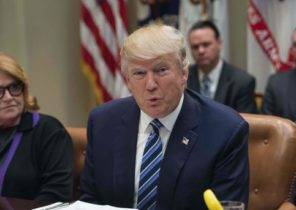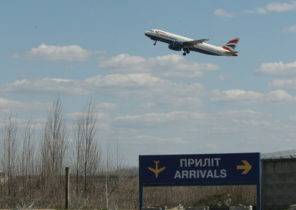
Next year should be revolutionary for world politics. A majority in number of 123 countries participating in the UN General Assembly voted to start negotiations on banning nuclear weapons. Until the summer of this year should be agreed upon a new Treaty, condemning nuclear weapons and prohibiting its possession and use.
But by itself it would not mean nuclear disarmament: none of the nine States possessing nuclear weapons in the foreseeable future will not join the Treaty. They and their closest allies believe that the first world must become peaceful, and only then can we abandon nuclear weapons as a deterrent. While it is clear that the nuclear powers are directly responsible for the conflict, interfering to begin, finally, nuclear disarmament.
An international Treaty to ban can be effective, if you will give all to understand that the nuclear weapon is worthy of every condemnation. After all, like the chemical and biological weapons, it destroys indiscriminately. Its disastrous effects cannot be limited neither geographically nor by time. Supporters of the Treaty about the ban I hope that they will be able to turn the potential consequences of use of nuclear weapons violates international law into an effective instrument of pressure and eventually achieve nuclear disarmament — at the very least, and without the assistance of countries possessing nuclear weapons.
These countries have their reasons for this position: in the promises of the nuclear powers on disarmament no one else believes. At the moment in the world there are more than 15 thousand nuclear warheads, more than 90% of which belong to Russia and the United States. Both countries are currently engaged in modernization of their arsenals. Behind them, the same actions are taken by China, France, UK, and not recognised under the non-proliferation Treaty of 1968 nuclear powers India, Israel, North Korea and Pakistan.
US President Barack Obama in 2009 promised that his country will lead the movement to rid the world of nuclear weapons. However, the hope for real action in this direction long ago melted. Instead, we are witnessing another round of multilateral nuclear arms race, causing a lot of global and regional risks. Without appropriate political pressure in this field nothing will change.
However, and elected by a majority of the States has been connected with different risks. Currently, the Foundation for international efforts in the field of disarmament non-proliferation Treaty. He, in turn, is based on a counter-agreement: the nuclear powers agreed (although not fulfilled this promise) to reduce the role of nuclear weapons as instruments of security policy. In turn, countries without nuclear weapons, pledged to open its nuclear facilities to the International atomic energy Agency (IAEA), to enable them to ensure that no secret is not developing atomic weapons.
However, in connection with the new Treaty banning nuclear weapons would increase the danger that the above-mentioned agreements on the control of nuclear weapons will collapse. Countries not possessing them could withdraw from the Treaty on non-proliferation, as soon as we sign a new contract. However, their argument would be that the new agreement is more comprehensive in content and more important, from a moral point of view — at the same time they would get rid of Intrusive monitoring by the IAEA. And then in the modern, divided into two parts of the world there would be no unifying element relative to the handling of nuclear danger.
Germany, like almost all other NATO countries, voted in the UN against the talks on banning atomic weapons — the government has questioned the appropriateness of disarmament negotiations without the participation of the nuclear powers and worries about the impact of the new Treaty on the non-proliferation Treaty. However, it is still not indicated their position regarding their own participation in negotiations next summer. In this waiting position lies the dilemma: if Berlin is to participate in them, you’ll violate the “nuclear solidarity” in the ranks of NATO. Participation in the Treaty banning nuclear weapons would come into conflict with the obligations of Germany under NATO.
At the moment on the German territory there are about 20 nuclear warheads of the United States. In the event of war the German planes had to take them to their destination. Given the current policy of Russia, some Alliance members believe that nuclear weapons as a deterrent again of great importance. In Berlin also do not hide concerns about the latest trends of the Russian “nuclear saber” in the context of the Ukrainian crisis.
If Germany refuses to participate in the negotiations, it will harm its image of a fighter with a nuclear weapon. By the way, in the year of elections to the Bundestag this could be especially fierce debate. Because the citizens of Germany are actively supporting the idea of a world free from nuclear weapons and will more actively advocate its prohibition, if it appears that the new US President Donald trump refuses to implement plans to abandon nuclear weapons and would give it great value.
This dilemma will remain insoluble until the nuclear powers do not agree with the importance of the goal of ridding the world of nuclear weapons. As for Germany, it would together with other countries not having nuclear weapons to participate in relevant negotiations and the link between the old non-proliferation Treaty and a new Treaty banning nuclear weapons. Berlin should insist that the new Treaty has assumed all obligations under the old contract, and at the same time joined him. Only in this conjunction the prohibition of nuclear weapons would complement the present control rules, not weakening them.







